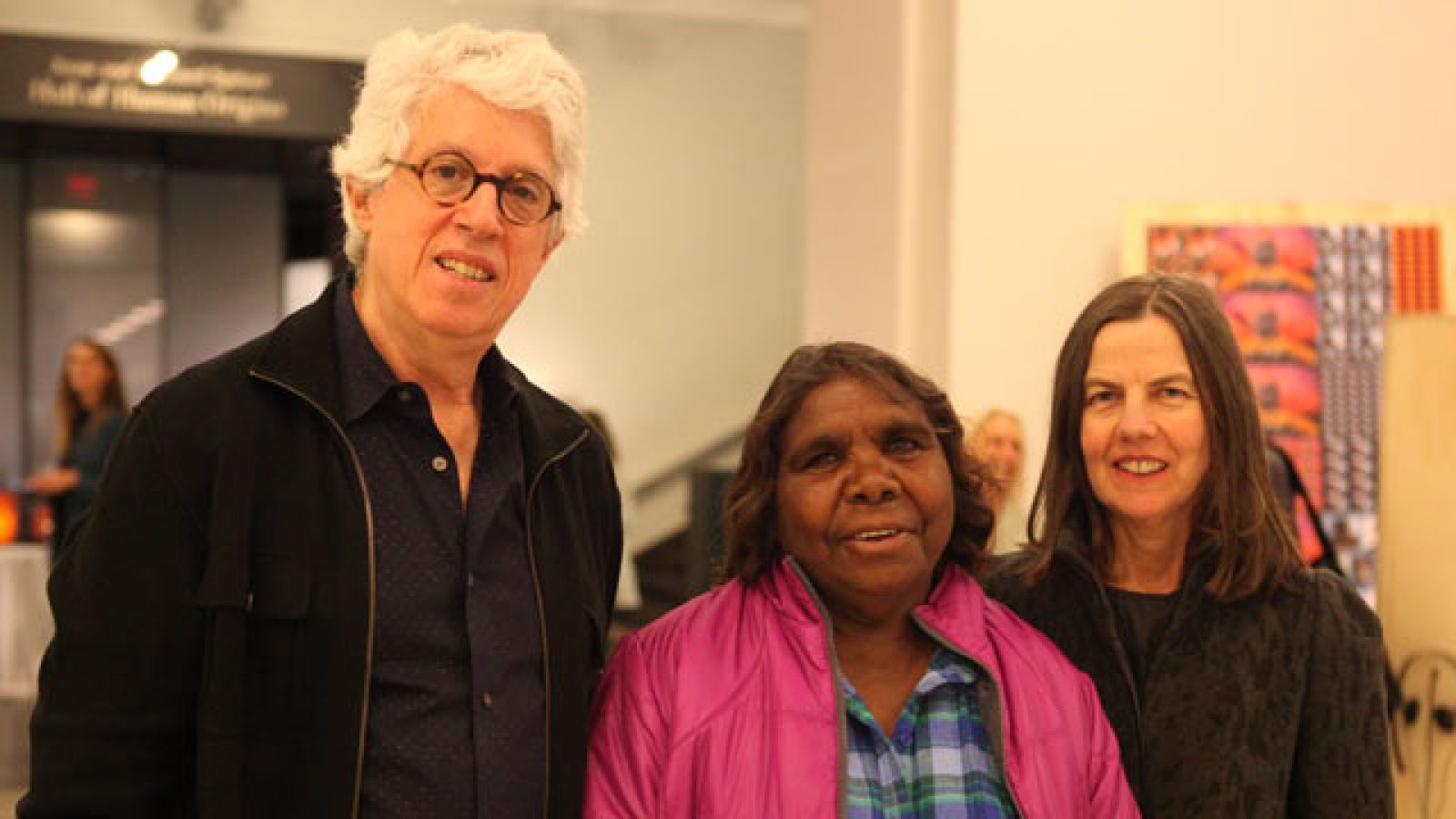‘Remembering Yayayi’ makes international film debut

Professor Fred Myers, Marlene Nampitjinpa and Pip Deveson at the Margaret Mead Film Festival in October 2014.
Professor Nicolas Peterson on the launch of a film documenting the Pintupi people’sstruggle to take control of their destiny during a critical time in their history.
Pip Deveson, Visiting Fellow at the ANU School of Archaeology and Anthropology, attended the Margaret Mead Film Festival in New York last month with Pintupi elder, Marlene Nampitjinpa.
They were there to screen Remembering Yayayi, a film Pip made in collaboration with anthropologist Professor Fred Myers and long-time colleague and filmmaking mentor, Ian Dunlop.
Remembering Yayayi is a key outcome in the final year of my ARC Linkage grant Pintupi dialogues - reconstructing memories of art, land and Community through the visual record with Peter Thorley of the National Museum of Australia and Papunya Tula.
It draws attention to the value that visual documents have for contemporary Indigenous people who have few records of their history.
The film features previously unseen film footage shot by Dunlop in 1974 at an early Pintupi outstation called Yayayi. This footage is reflected on by Nampitjinpa and Dunlop, in conversation with Myers - who was at Yayayi carrying out his doctoral research at the time of the filming.
All three revisit an important period of transition that the archival footage represents - when Pintupi people were struggling to take control of their destiny in the early years of government policies of self-determination.
In September, the film was launched at Kintore as part of the tenth anniversary celebrations of the Western Desert Nganampa Walytja Palyantjaku Tjutaku (WDNWPT) Aboriginal Corporation Dialysis Service (also known as the Purple House).
As Chairperson of the WDNWPT, Marlene Nampitjinpa has been keen to make the most of the health messages implicit in the film. As her commentary on the archival footage highlights, we are looking back at a time when Pintupi were “still healthy. No sick. You can see ‘em – no sick ones – happy and healthy.”
Pip and her fellow directors were honoured to be able to screen the film as an official selection at the Margaret Mead festival - and the audience were treated to a very special screening with the attendance of Marlene, who spoke about her life in the Q&A session after the film. It was obvious that people were moved as many had tears in their eyes as they left the theatre. As Marlene said, “We broke their hearts.”
Pip Deveson retired from her position in the Centre for Digital Humanities Research at the beginning of this year, but continues her work on various projects as a Visiting Fellow with the School of Archaeology and Anthropology, Research School of Humanities and the Arts.